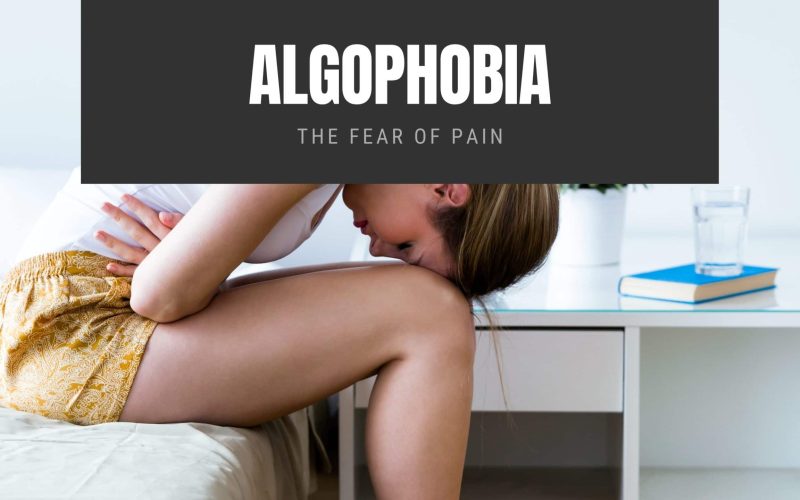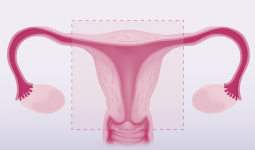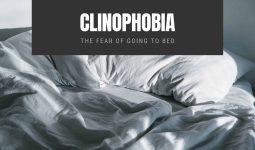Pain is one of the most uncomfortable feelings in the world. Nobody likes pain, but sometimes, for some people, it is not necessarily the fear of the pain that is present that makes them uncomfortable; it is the fear of pain generally.
Let us discuss algophobia.
What is Algophobia?
Psychologists have reasons to believe that this phobic reaction is primarily a learned behavior.
One of the most common examples of algophobia is an older adult who has been told about the kind of pain his or her peers are going through.
Such a person begins to anticipate and continuously think about the pains and illnesses before they start to experience them.
You will find more detailed information about the causes, symptoms, and possible treatments of Algophobia below.
What is Considered Normal?
It’s natural to worry during stressful times. But some people feel tense and anxious daily, even with little to worry about.
When this lasts for six months or longer, it may be a generalized anxiety disorder. Many people don’t know they have it. So, they may miss out on treatments that lead to a better, happier life.
It is usual for people to worry when they are ill or going through stressful times. However, for some people, this intense feeling and anxiousness is a day-to-day activity, even when they have little or nothing to worry about.
When such anxiety about pain lasts for six months or longer, such a person can be diagnosed with an anxiety disorder.
Unlike other phobias that are popular, algophobia is not a very famous one. Thus, many people might not be aware that they have it, making them miss out on possible treatment to help them live healthier lives.
What It Feels Like (Symptoms)
The primary symptom of agoraphobia is a persistent and exaggerated sense of anxiety and tension.
A person dealing with the fear of pain may not be able to pinpoint a specific reason for feeling tense or uncomfortable.
It is also possible for a person with algophobia to begin to worry about very ordinary things such as relationships, bills, or even their health.
You may begin to experience insomnia, clouded thinking, irritability, and general discomfort.
Here is a list list of the nine most common symptoms of algophobia
- Feeling of panic
- Irrational fear of pain
- Feeling of dread
- Feeling of terror
- Rapid heartbeat
- Trembling
- Shortness of breath
- Anxiety
- Extreme avoidance measures adopted
Who Gets It?
While the example of aged people was used above, people of all ages can develop algophobia.
This means that even children can deal with algophobia because it is a generalized anxiety disorder.
Algophobia tends to show up gradually, with the first symptoms only appearing between a person’s childhood and middle age.
It has also been revealed that twice as many women as men deal with the fear of pain.
What Are the Causes?
Genetics may put some people at a higher risk of getting this phobia, but that is not the only way someone can have agoraphobia.
Experiences and background also play an essential role. Brain chemicals are neurotransmitters, and even a pair of structures in the brain known as amygdalae are also suspected to be involved.
How Algophobia is Diagnosed
There is no laboratory test to diagnose fear of pain, so the diagnosis is based on a person’s description of the symptoms they experience.
Your doctor may ask questions about the symptoms you experience, how often you experience them, and whether or not they interfere with your day-to-day activity.
Your doctor may generalize it as an anxiety disorder if you have dealt with it for six months or longer.
Home diagnostic testing for phobia for pain
These are the home medical diagnostic tests that may be relevant to Algophobia:
Mental Health (Adults): Home Testing
- Adult ADHD — Home Testing
- Concentration — Home Tests
Child Behavior: Home Testing
- ADHD — Home Test Kits
- Concentration — Home Testing
Brain & Neurological Disorders: Related Home Testing:
- ADHD — Home Tests
- Drug Screening Kits
Mental Health: Home Testing:
- Home Emotional Stress Tests
- ADHD — Home Testing
- Concentration — Home Test Kits
Treatment
Psychotherapy should help
One type of talk therapy is quite effective in the treatment of anxiety. It is known as cognitive-behavioral therapy.
In a cognitive behavioral therapy program, a counselor assists you in identifying your negative actions and thoughts.
You may be required to do some homework, like listing out or writing down the thoughts that cause you to worry the most. You will also have to learn the easiest ways to calm yourself.
Anti-Anxiety Medicine
Medications may be included in your treatment plan. Some newer antidepressant medications work perfectly to reduce anxiety.
While these drugs are not cure for algophobia, It may take about a month for you to feel better.
Your doctor may prescribe a benzodiazepine during your treatment time or for a short duration.
Some of these drugs are very addictive, and that is a risk doctors do not want to expose patients to.
Sometimes, generalized anxiety may be treated with the use of older types of antidepressants, mainly if your symptoms include panic or depression.
Discuss the pros and cons of medications you must take with your doctor.
Taking Care of Yourself
One of the best ways to treat such a phobia is to take good care of yourself. A few simple lifestyle changes can be of great help.
Avoid consuming too much caffeine, illegal drugs, and some cold medicines, as they can boost symptoms of anxiety.
Try engaging in healthy activities like exercising, getting enough rest, and eating healthy foods. You can also use relaxation techniques, like yoga and meditation.
Herbal Remedies: Use With Caution
There are many herbal supplements in the market that claim to be helpful. However, if you are considering trying any medicine or supplement, discuss it with your doctor first to know if it’s safe for you or not.
Kava is one supplement that people have used, but it has recently been reported to lead to liver damage.
Also, St. John’s wort has been noticed to affect other drugs, including birth control pills and antidepressants.
When It’s More Than Anxiety
People who are dealing with a generalized anxiety disorder may also develop alcoholism, depression, or drug addiction.
It’s not uncommon for people who have GAD to suffer from another anxiety disorder. These disorders may include posttraumatic stress disorder, panic disorder, obsessive-compulsive disorder, and even social phobia.
Where to Get Help?
Helping yourself overcome algophobia is not impossible, but it is best to seek the help of a professional. Talk with your family doctor, and ensure you leave out no details.
If, after listening to you and asking a few questions, an anxiety disorder seems likely, your doctor will refer you to a mental health professional who is trained in psychotherapy.
Always remember the importance of choosing someone you feel comfortable talking to.





